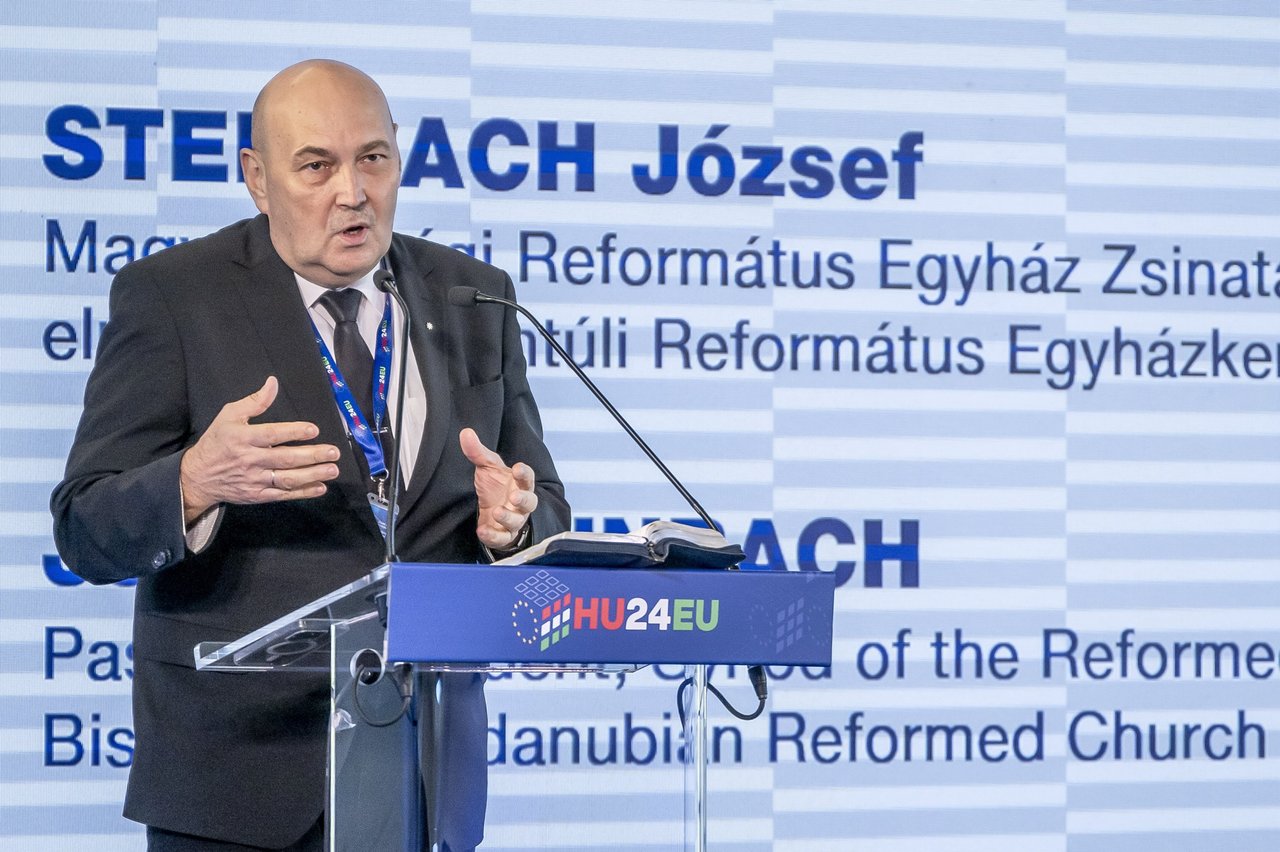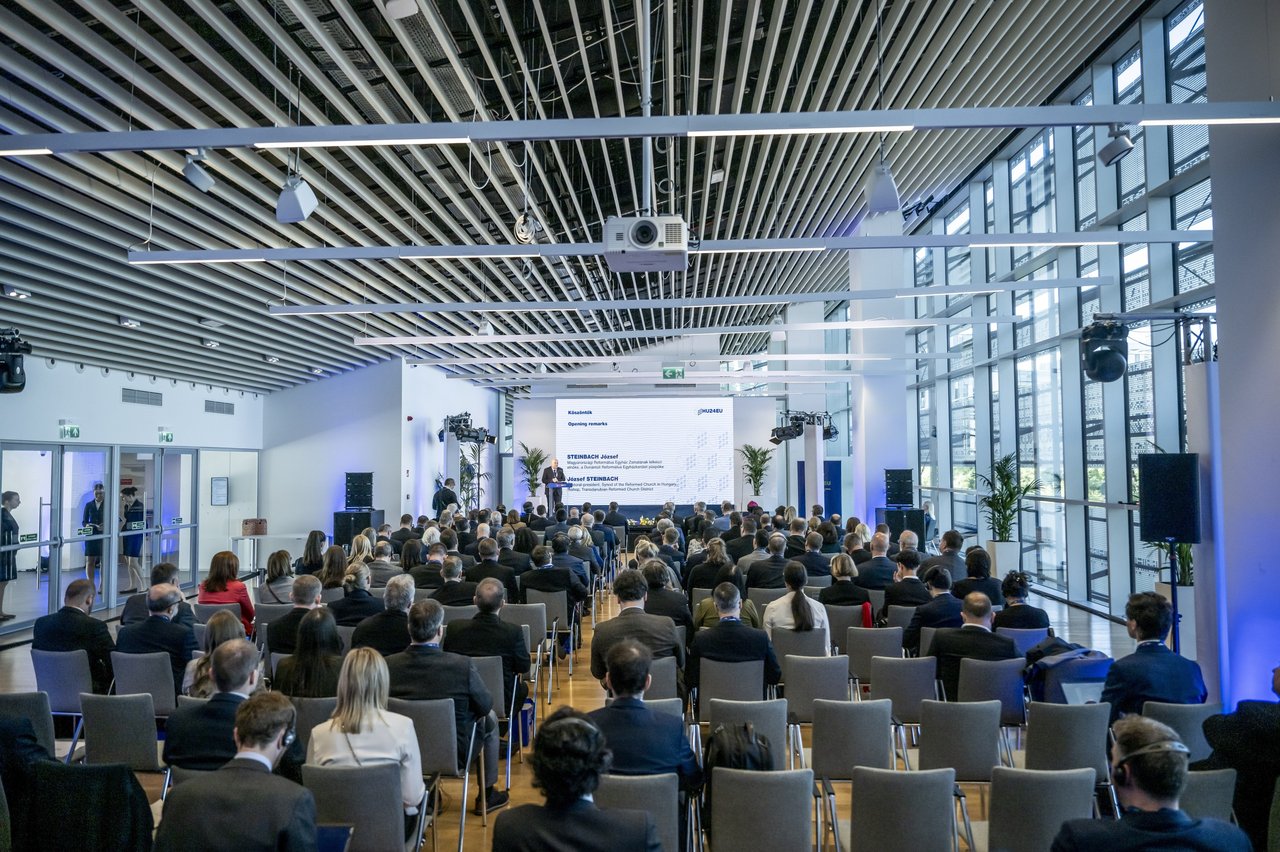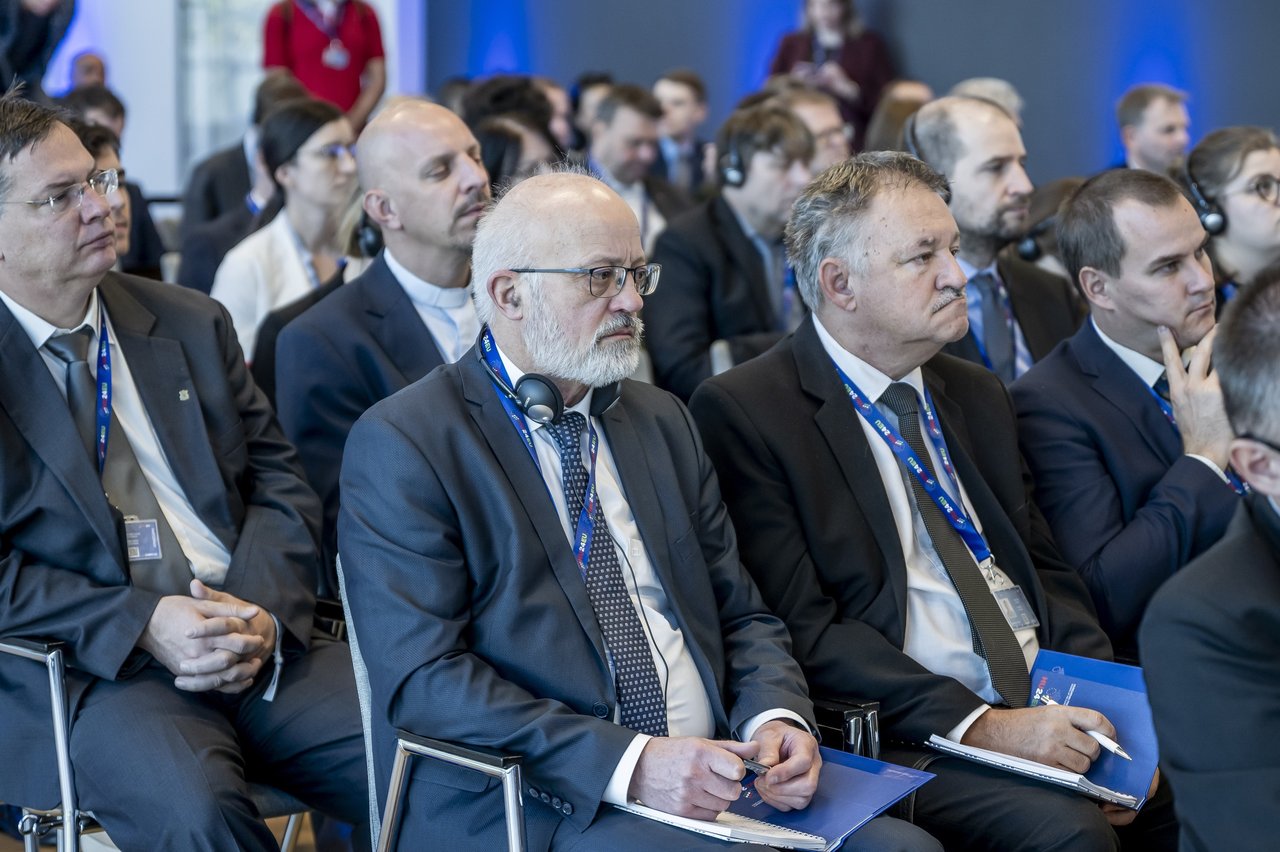The international consultation on Shared Responsibility: Cooperation between States and Religious Communities in Europe took place on 18 October at the Museum of Ethnography in Budapest in the framework of the Hungarian EU Presidency. Bishop József Steinbach, ministerial president of the Synod of the Reformed Church in Hungary (RCH) addressed the participants. “The living God has entrusted us Christians with the task of working for the kingdom of God already here on earth, and the greatest challenge in this ministry is to find the key to those who think quite differently about the reality with gentle, firm Christian love,” stressed the Bishop in his address.

Bishop József Steinbach, President of the Synod of RCH
“Let me greet you all with the Word of God, a beautiful, joyful psalm full of hope,” began the bishop in his address, reading out Psalm 100: “Shout for joy to the Lord, all the earth. Worship the Lord with gladness; come before him with joyful songs. Know that the Lord is God. It is he who made us, and we are his; we are his people, the sheep of his pasture. Enter his gates with thanksgiving and his courts with praise; give thanks to him and praise his name. For the Lord is good, and his love endures forever; his faithfulness continues through all generations.”
“It is good to be immersed in the encouraging, hopeful message of this beautiful psalm as we prepare for this conference,” József Steinbach noted to the participants and then spoke of how the meeting's succinct title, “Shared Responsibility,” made him think. In his understanding, this responsibility should also include the fact that God has made us worthy to be his instruments, his co-workers. “God has made us custodians of other human beings, above all of those among whom he has placed us, and of the created world that we have been given to us to cultivate, work and take care of it,” he said. He stressed that the content of life is given by faith and the values and order that follow from it, in which man can flourish since there is no freedom without order. And from faith and values stems identity, i.e. the awareness of who I am. And in the great commandment (Love the Lord your God, love your neighbour as yourself), the ability to love ourselves is also included. We are called to appreciate our identity, our faith, our culture, our own treasures, which the Lord has entrusted to us.

He added that the adjective “common or shared” before the word “responsibility” was very important, and he believed that this conference also showed that those present wanted to carry this sacred burden from God together. The bishop also recalled that this shared responsibility refers to the relationship between church and state in the constitutional order, but it suggests much more than that. It means the responsibility of each person in this country, in the great community of Europe and the world. “Regardless of governments and views, we must seek our common commitments and joint obligations, through which, in God's will, this life on earth entrusted to us can finally be more beautiful and joyful,” said the ministerial president of the Synod.
At the same time, he warned that there is much to be done. “With man's separation from the living God, fellowship and connection between sibling and sibling, between fellow human being and fellow human being becomes increasingly broken, so that we are at war with God and with one another. We are running wild, our lives are full of conflicts, both on large and small scales, and although we can talk nicely about our reality, out in the field, we somehow do not want to, we cannot implement it; there we are led by something quite different,” warned the bishop, while referring to the words of the protestant theologian Wolfhart Pannenberg. We are guided by selfishness, by our self-centeredness, and the void of our self-concern.
The Bishop added that we need each other and stressed that he meant this in a very broad sense. He quoted János Erdélyi, a Hungarian poet from the 19th century: “My three torches are burning: faith, homeland, humanity,” and added that Christianity has a responsibility for all humanity since the Scriptures also say: “Go into all the world and preach the gospel to all creation” (Mark 16:15).

János Molnár, lay president of RCH
“The living God has entrusted us, Christians, to be agents of the kingdom of God here on earth, and the greatest challenge in this ministry is whether we find the ‘key,’ the access with gentle but firm Christian love, to those who think differently than us – be as in the preaching of the Gospel or through the means of education and social work,” the Bishop noted, inviting everyone to serve the Lord with joy, in the spirit of the shared responsibility. Finally, he concluded with the quote from the well-known Hungarian poet, Attila József: “man lives / eating bread and hoping / waiting for the winter to pass / to sit on a bench in the sun / and the blood to redden.”
Rev. Frank-Dieter Fischbach, General Secretary of the Conference of European Churches, also attended the consultation and participated in the Round-table discussion on Christianity as the foundation of European culture and political system.